Congratulations Nacel Open Door Stars: 2024-25 CBYX Vocational Scholarship Students
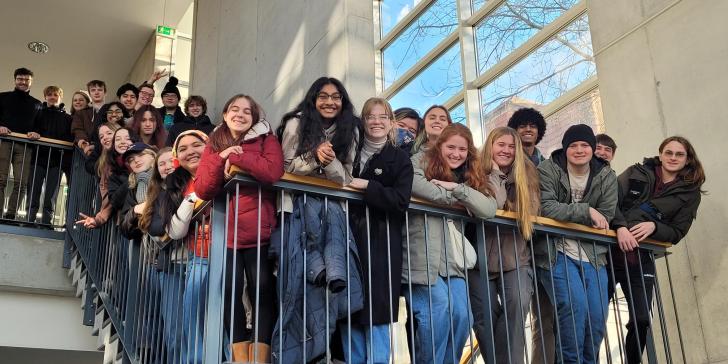
As the 2024-25 Congress-Bundestag Youth Exchange (CBYX) Vocational cohort reaches the halfway point of their program, we’re taking a look at their journey so far. The group recently gathered in Weimar for their mid-year seminar—a mini-reunion where they reconnected, reflected on their experiences in Germany, and set new goals for the second half of their exchange. From celebrating the holidays in Germany to adjusting to life with a host family, they’ve embraced new traditions, navigated unexpected surprises, and gained valuable insights along the way. We’re excited to share some of their reflections and photos as they look ahead to what’s next!
What was unique about celebrating the holidays this year?
"Some things that were unique about celebrating the holidays was seeing just what things were different in Germany. My host family had a lot of family members around Christmas and I put on a concert with my host sisters every day. Over Sylvester and New Year’s, we were in the Netherlands. I decided to make traditional Japanese New Year's food for my host family, which I normally make at home. In Hawaii, I would say New Years is a relatively bigger holiday, so it was surprising to see that New Year’s wasn't as big for Germans. A highlight of Sylvester was watching “Dinner for One” once in English and once in Kölsch." - Kainani
"The holidays this year were both similar to what I grew up with and very different at the same time. My highlights were carrying torches on Christmas Eve night while searching for the Weihnachtsmann, attending a midnight service at a church with purple stained glass windows, and watching "Dinner for One" while waiting for the largest amount of fireworks I've seen in my life go off for three straight hours." - Phoebe
"For the German holiday season there is different food than what we eat in America, also the traditions are different." - Jack
"My circumstances around the holidays might differ from those of the other cohort members. My host mom actually comes from the United States, and moved to Germany around ten years ago. As a result, my host parents like to celebrate some holidays like how they are in the United States. Traditionally in Germany, presents are opened on the evening of the 24th of December. While in the U.S. we like to open gifts on the 25th of December in the morning. Naturally, we celebrated the "American" way, and woke up all together at 7:00 in the morning to open gifts. I also got to celebrate Thanksgiving with my host family too, which was a real surprise since I know it isn't really celebrated in Germany.
However, this doesn't mean that I didn't celebrate any holidays in Germany! I got to celebrate St. Martin's Tag with my community by playing trumpet for over 200 children! I saw the children walk in a parade proudly holding their lanterns that they made during Kindergarten that day. The holidays here have a huge sense of community involvement. And that is the first thing that I found super unique about celebrating the holidays in Germany. During Christmas Eve, I had a trumpet performance in the city square. I was just expecting a normal crowd of 100 people, but I was in shock when I saw over 500 residents of Kuppenheim gathered together. They even sang along to the music we played! At the end, people exchanged greetings with each other and handed out Christmas cards to their friends and family in person. It goes down as one of my most monumental days of living in Germany. The atmosphere was amazing! It made me realize how involved I was in the community, and the genuine kindness that everyone had towards each other.
One other thing that was unique to German Holidays were the foods that we had. My host family has a tradition with the meals they eat on Christmas and New Year’s Eve. We had sauerbraten, which is a soured pulled pork dish, on Christmas Eve. The next day, we ate cheese fondue, and I had the opportunity to invite a member of our cohort to eat dinner with us. Finally, on New Year’s Eve, me and one of my community groups, the Pfadfinders (Boy Scouts), ate a raclette dinner. The fact that the meals were set this way every year is different for me. Normally, dinner on these holidays is more like a “What are we in the mood for this week” instead of having a set meal. Sometimes, meals also seem to be more like a wide array of dishes. Turkey, stuffing, mashed potatoes, green bean casserole. That was something minor that I realized." - Brent
"In the States, Christmas for me is sitting on the couches of my living room with my small immediate family. Sometimes a Christmas tree—ornately decorated by my sister and me the night before—stands in the corner, sometimes not. Christmas is the eye in the storm of my family's work and school schedules. But what mainly sets the day apart is that at night, my sister makes cups of hot chocolate—with an extra marshmallow for me and a dash of cinnamon for my mother. Because my Christmas celebrations in the U.S. were so quiet and unconventional, I was unsure what to expect when experiencing a German Christmas for the first time. Two weeks before our big Christmas dinner, my host mom and I spent five hours baking Christmas cookies. It was my first time baking from scratch, and it was magical. Together, we carefully followed countless recipes, sneaking pieces of dough and broken cookies when we thought the other wasn't looking. The next day, we shopped for and decorated a Christmas tree. The night before Christmas dinner, I placed my wrapped gifts under the tree, wondering how the next day would unfold.
Compared to my Christmas back home, there was much more preparation involved: decorating the rooms and tree, sending out invitations, cooking a big dinner complete with appetizers, an entrée, and dessert, and buying and wrapping presents. But participating in these traditions, I realized they carried the same feeling of comfort and togetherness I’ve always associated with Christmas, just in a new way. On the night of December 24th, all ten of us sat at the dinner table together, the room loud and warm with laughter. My host mom and I passed out glasses of soda and wine and brought courses slowly to the table. We then all went in a circle to exchange gifts. Back home, I hardly spent time with my extended family, and never met my grandparents. But here, my host grandmother laid a warm hand on my shoulder as I opened my presents, another relative gleefully taking pictures of my overjoyed reactions. Afterwards, my host mom clinked her dessert spoon against her wine glass and said, "I never knew I'd be celebrating Christmas with a host child, but she is the greatest gift I've received." At that moment, I realized I had become part of the family in a way I never expected.
Through Christmas in Germany, I experienced the warmth that comes from celebrating with a large family. Though members of my host mom's family are separated by quite a bit of distance, the annual Christmas dinner keeps them connected. Celebrating the holidays in Germany inspires me to create new traditions within my own family that hold regardless of where life takes us." - Varsha
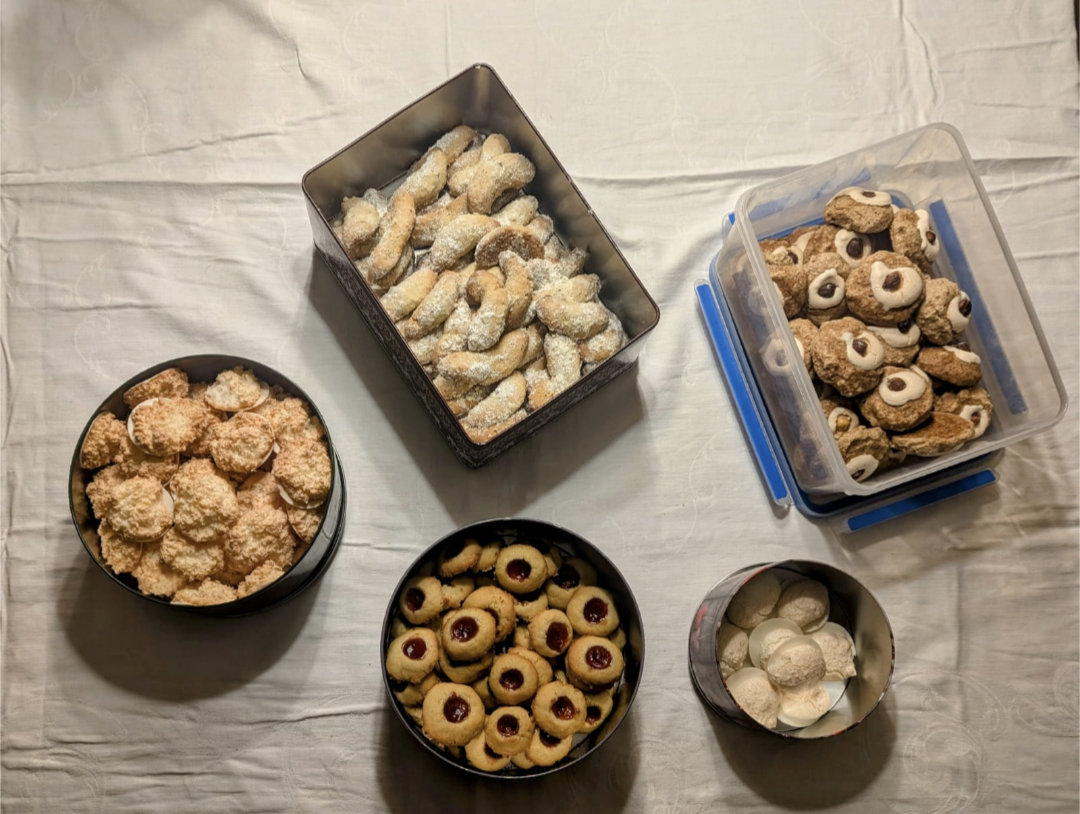
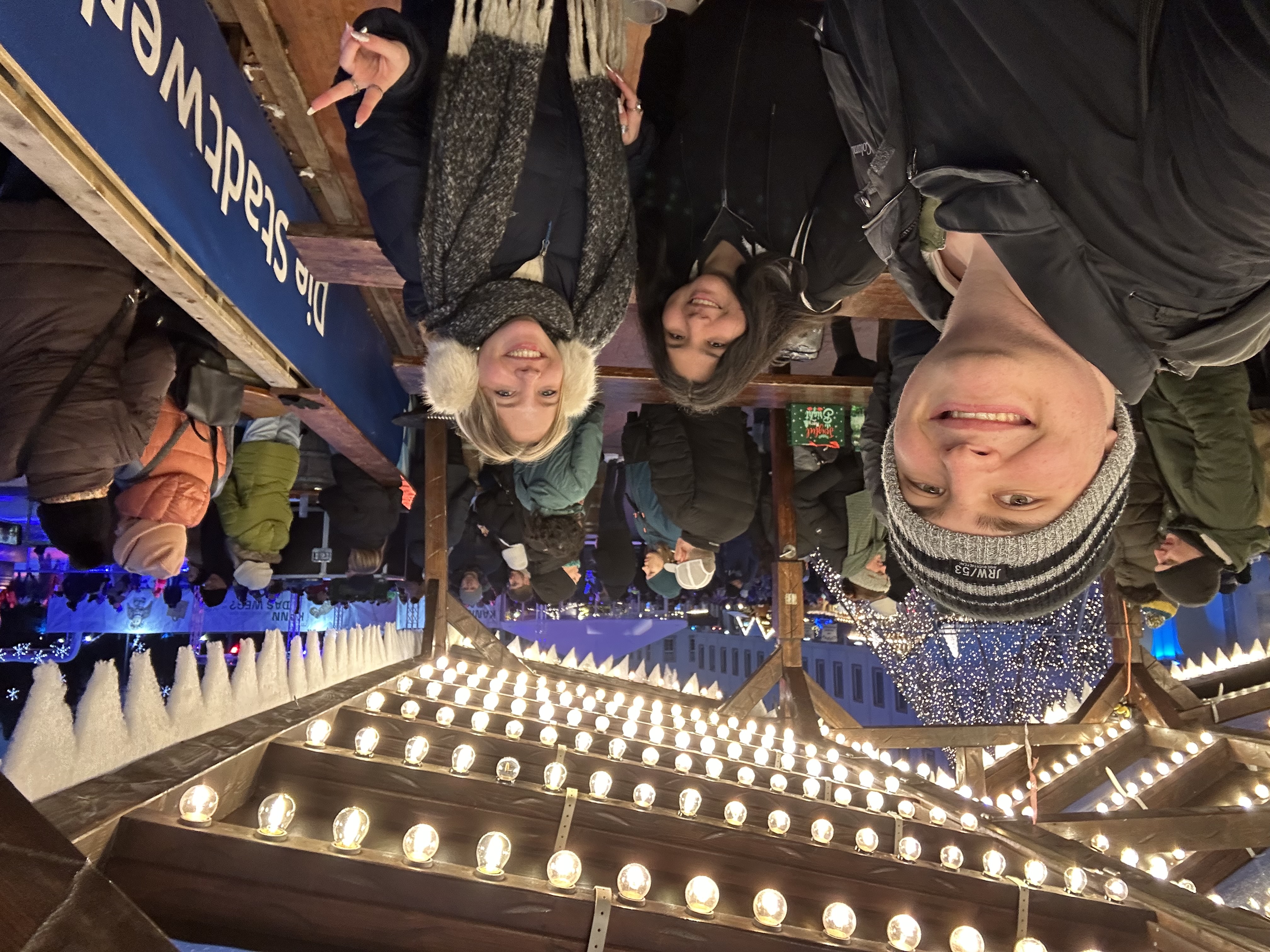
What has surprised you about living and studying in Germany?
"Something that has surprised me is how individualistic Germans seem to me, in Hawaii many people live in multi-generational homes. While there are instances of that in Germany, I haven't seen many. To me Germany seems like a more individualistic than collectivist culture. I would also say the price shock from being here is something that I still am affected by, many things are much, much cheaper than in Hawaii." - Kainani
"I was surprised at how different the school system functions in both higher level education and in elementary school." - Phoebe
"How close everything is, I can walk or bike or take a short train ride anywhere I need to be." - Jack
"There have been many culture shocks and surprises that I have experienced while living and studying in Germany. First, the reliability of public transport. Never in the United States would I have to take a train or a bus to get to where I need to go, and although I had a bike, it was difficult to have to cross busy streets all the time. But here in Germany, I am using the public transportation system every day. I use it to get to work, go to my friend’s house, and even long-term travel to vacations and football games! It also surprised me about the amount of people that take the public transport too! People who take public transportation find it to be more energy-efficient, sometimes quicker, and more stress-free because of not having to drive themselves.
Also, studying in Germany has more pathways for students to achieve their academic and career goals. In the United States, the main pathway for students to go to University is to pass high school and receive their high school diploma. In Germany, there are four different types of schools that students can go to after Grundschule. These are Berufsschule, Gesamtschule, Realschule, and the most common, Gymnasium. Gymnasium is the pathway students usually take to go to university. Just like how high school is the pathway people take to go to college. I believe this approach to education is a fantastic idea. Students who don’t have the desire to go to college, and would rather stay in the workforce, don’t have to go to school for as long, and also have a more generalized field of study.
However, this causes the Gymnasium level of schooling to be considered very difficult. Grades for classes are only made out of four tests, and failing just two of those tests would be enough to not pass the class. And while homework is not graded often, the grading scale for the tests are extremely strict. I found it super impressive that people my age could be doing the work that came with learning at a German Gymnasium." - Brent
"In America, I had always seen Germany as the epitome of efficiency. While this holds true in many ways, I’ve been surprised to find that life here often prioritizes connection and experience over strict efficiency. For example, one of my favorite customs, Kaffee and Kuchen—a German tradition of sipping coffee while enjoying cake—is less about the food and more about the conversation. My host family and I once spent hours solving all the word puzzles in the newspaper over espresso and Apfelkuchen we had baked the day before. This importance of conversation above efficiency extends to other mealtimes as well. Unlike in America, where meals often end as soon as plates are cleared, here, bedtimes—not empty plates—signal the end of dinner. Some of my favorite memories include late-night talks with my host parents, our discussion topics ranging from pizza-making to American politics.
Experience also often trumps efficiency in terms of transportation: I’ve noticed that many Germans prefer walking or biking, even when faster modes of transportation are available. Though Germany is famous for being environmentally conscious, I’ve come to realize that this preference is not only due to sustainability reasons, but also because of an appreciation for the journey, not just the destination. Over a dinnertime chat, my host mom excitedly recounted how she walked to a party in the inner city for an hour instead of driving, not because she had to, but because she enjoyed the scenic route.
The longer I’ve been living in Germany, the more I’ve embraced this mindset. Now, I often choose to walk over taking a bus, which offers a host of things I wouldn’t get otherwise: the scenic route, the fresh air, and extra time to be with my thoughts. And when I do take the bus, instead of spending my time on my phone, I look outside the window, taking note of interesting landmarks or particularly beautiful views. I enjoy sitting down to eat breakfast, sipping a cup of tea as I reflect on my plan for the day. Living in Germany has taught me that although strict efficiency has its place, it is important to slow down and savor the moment too." - Varsha



How has the experience of living with a host family impacted you?
"I think living with a host family allows you a peek into German home life, family traditions, and German social culture. I am with a different host family now, but from the first part of the program after the language course, I lived with a host family and got pretty close with the host sisters. I had trouble making friends in school, due the commute and people being busy studying for their Abitur. So having a host family that you can socialize with and do activities with I think is important." - Kainani
"I've had to adapt a lot to my host family and come to terms with some of my own character traits. Living with a host family has given me a solid base to work off of when trying to find friends and make further connections. Not only have they provided a bed and food for me, but they have also given me a safe space to be myself (grumpy or not). They support me in anything and everything I do whether that's trying to figure out a school schedule, write a resume, or bake a cake that isn't raw on the bottom. They've given me a family here in Germany and made it possible for me to branch out without worrying about not having a fall back option. I honestly cannot share how much my host family has helped me and changed my experience here in Germany. I think if I were living alone or staying in a hostel, I would have struggled a lot more in every area of my life and not have had so many of the amazing experiences I've been blessed with." - Phoebe
"It has given me a second family and created lifelong bonds." - Jack
"My amazing host family has helped shape my experience a ton. They are a great resource for my questions about German culture and life in Germany, which believe me, there is a lot. Questions come up very often. Sometimes they are about the food that we are eating, or why things happen the way they do in Germany. However, this is my first time ever living independently. So many questions are about how to live independently, how to clean properly, and cooking meals. My host parents were both exchange students, and they loved every moment of it. With that, they also understand the challenges and downs that sometimes arise. As many think, you have days that just don’t go well. And it’s nice to have the comfort and support of a host family to guide you through what to do. They are always full of advice, and truly seek the best for you.
Without my host family, I wouldn’t be as involved in the community as I am now. I played the trumpet in middle school, and I absolutely loved it. But because of the stress of high school, I had to drop it. My host dad encouraged me to pick it back up and play for my city’s orchestra. I made tons of new connections with the orchestra, and now I’m even thinking about joining my university’s marching band!
In my host family, I have two younger host brothers. In my family in the United States, I have two older sisters. I am very proud of being an older brother for the first time. It has strengthened my relationships with Germany, and there are always things to do with them. I read my three year old host brother stories at night and play “police officer” upstairs. With my youngest host brother, I also read him stories, play with the ball, and entertain him with all the toys that we have. So personally, having this opportunity with them has really had a positive effect on my experience here." - Brent
"Both my host families so far, particularly my host family in Wuppertal, enjoy showing me the sights of Germany. On day two of my stay in Wuppertal, my host mom took me on a trip with the Schwebebahn (also known as the “sky train”) and showed me the old city town hall and the way to the Gymnasium she attended many years ago. She took pictures of me in front of the Müngsten bridge (the highest railway bridge in Germany!) and promised to show me many more landmarks and sites. But when I asked her about the festivals and events I had heard about in America, like Oktoberfest or Carneval, she merely waved her hand and said, "that's not that interesting—there are much better things to see here." It has been fascinating experiencing Germany through the lens of what my host mom deems the most important.
Her perspective not only teaches me more about her passions but also encourages me to reflect on my own. My host mom's interest in architecture and art—something that only momentarily caught my attention during history class in America—has transferred to me. We've been to practically every museum nearby, marveling at the craftsmanship of cutlery sets and the beauty of sword handles. Inspired by her ability to immediately classify architecture and recall the history behind them, I've since made it a point to acquaint myself with art history and its connection with historical events. We share a love of food and new recipes. Dinners often consist of a classic German combination of potato puree, Würstchen, and Sauerkraut, with my childhood favorite dessert, gajar ka halwa. Her excitement when I cook the Indian recipes I've grown up with inspires me to embrace new recipes and fresh experiences. I've automatically picked up small phrases from her, such as "na?" in lieu of "how was your day" or "das ist der Hammer!" when something is particularly exciting. Noticing it, she has since taken great joy in teaching me her favorite German idioms, which I use with relish.
Living with a host family has shown me the truth of the fact that Germany is more than its language or its history, as it is commonly portrayed in the United States. Instead, Germany is a living, breathing collection of identities shaped by people like my host mom, whose perspectives have broadened my own. I feel lucky to be experiencing a small part of it." - Varsha
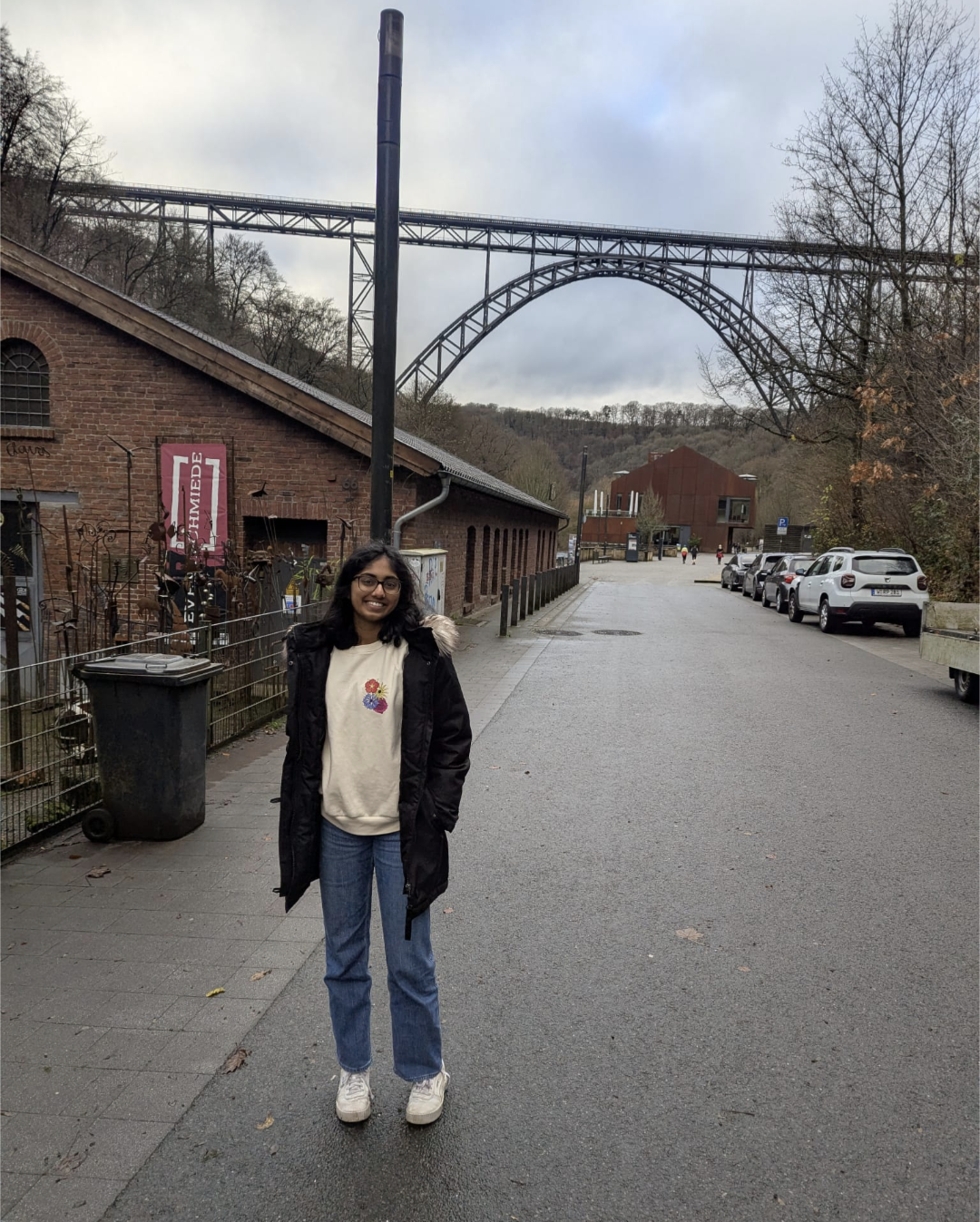
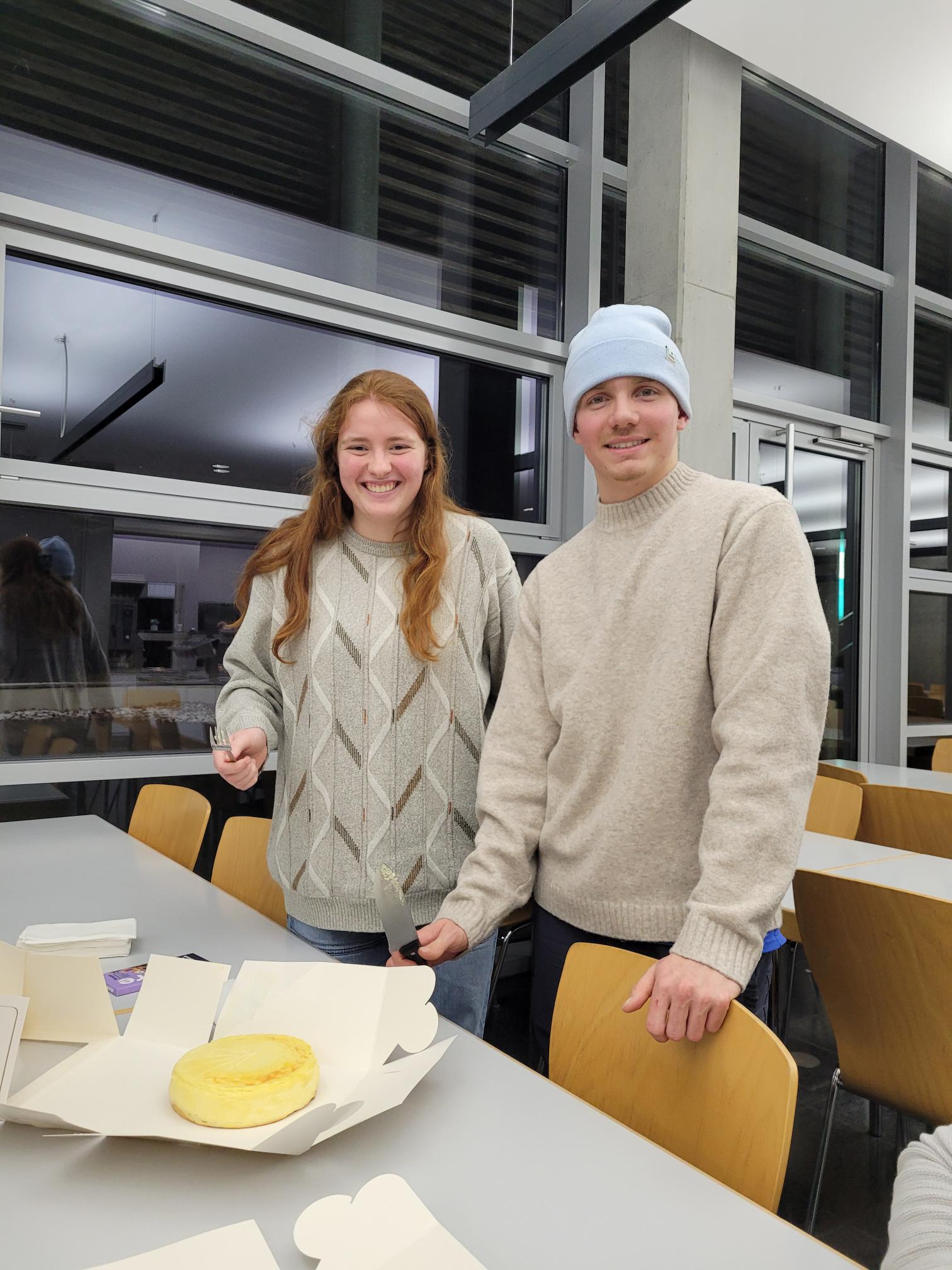
What would you tell someone who was considering studying abroad?
"The advice I would give to someone who is studying abroad is to make the most of it, if you have hobbies you do at home, those are good ways to meet people while learning the language. I would also say though, it's important to be realistic- even if you already speak the language of the country you’re going to - living in another language, another culture, with people you don’t know well is tough and tiring. It's important to give yourself some grace. I think studying abroad has allowed me lots of opportunities and is ultimately very rewarding. At the end of the day though, it’s important to remember that you will still have problems abroad, life continues on.
I think being abroad is a good way to know yourself better. I think taking this gap year has allowed me to solidify my goals, meet more people, and learn how to think in different ways." - Kainani
"I have two things that I would say to someone who is considering studying abroad. First: do it!!!! There is nothing like living in a foreign country and experiencing their culture. It changes the way you think and helps you be more open-minded and flexible. You gain so many skills in areas like communication, independence, and emotional intelligence. The second thing I would say is it won't be easy. There's a lot of stereotypes (especially on social media) that say an exchange year or studying abroad is like a never ending party or vacation. That's simply not true. There are times that really are the worst, but pulling through them makes it even more worth it. Studying abroad has its challenges, and it's good to know how to cope with them. Prepare beforehand to handle stress, loneliness, homesickness, doubt, and frustration." - Phoebe
"It’s absolutely a great idea and if you can you should go for it, expect some troubles especially early on but it’s a great experience." - Jack
"First, be yourself during the application process! Many people think that they need to change their personality to make themselves stand out more among the rest. The information that you write in the host family letter, or write in the application all go towards the process of finding you a host family. Having a host family that chooses you based on your own personality will lead to a more enjoyable experience with them.
Next, It is super important to take advantage of the opportunities that arise. You are going to meet so many new people, and thus many advantages to do new things and/or travel to new countries. This will strengthen your friendships that you create, but also raise your cultural awareness by expanding your knowledge of other cultures.
Finally, Cherish every moment of your journey. When accepted, you are going to feel an overwhelming sense of accomplishment, and that will follow you for your entire exchange year. From the first conversation with your new friends, to your last, it is important to remember and cherish these moments that you have with them. Scrapbook, journal, or even creating a photo album. At the end, you want to look back, and be proud of the impact that you left behind on your host family, teachers, and friends." - Brent
"The first thing that comes to mind is that I wish I had trusted myself more from the start. During my first few weeks in Germany, I spent countless hours worrying about my ability to navigate public transportation despite delays, pick up German quickly enough for me to interact meaningfully with my surroundings, and handle other day-to-day anxieties. But overtime, I realized that I was able to manage much more than I thought I could if I focused more on staying in the present. Though it's much easier now, I consciously had to make the effort to focus on moments and memories around me, instead of worrying about an upcoming bus transfer or German presentation. Once I began to make this effort, I discovered new things about myself and Germany.
I discovered that although it's not ideal to miss a bus or to accidentally bypass a stop, it's kind of interesting to be in an area where I otherwise would never go. And besides, there's always a way out, whether it's taking the bus that comes the next hour, finding a different convoluted connection, or calling a cab. I once had an hour to kill in a nearby city, and I enjoyed a scenic walk along a river. You never know what you'll find!
Just as I learned to embrace unexpected detours, I realized I needed to approach learning German with the same openness and patience. For me, this meant learning to let go of my perfectionism. German grew so much more enjoyable to learn when I learned to simply speak aloud, worrying less about grammar and more about connecting with my host family and German friends. Sometimes I still get caught up in my errors, but when I remind myself of the progress I made, I only feel encouraged to learn and improve further.
And from there, I learned to laugh at myself. Attending school with German students, I accidentally used the formal pronouns to address my friends so many times because I was so used to it. Though I knew they meant no harm, their laughter initially stung. But when I joined them in their laughter, I saw the humor in it and didn't make the mistake again. Since then, I'm the first to laugh at myself when I make an error, because to be honest, confusing the German word "Gift" (meaning poison) for "Geschenk" (meaning gift) is pretty funny." - Varsha
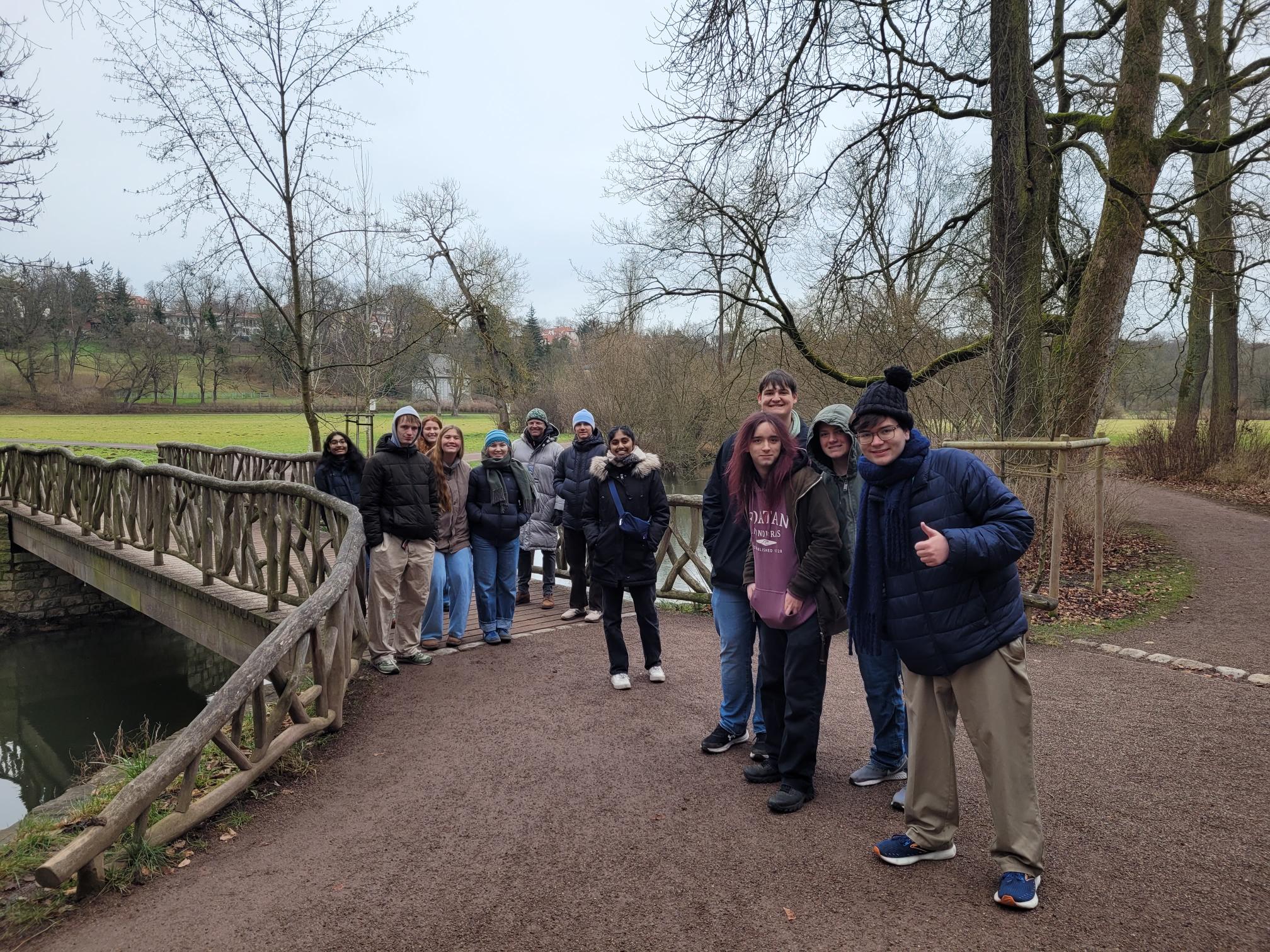
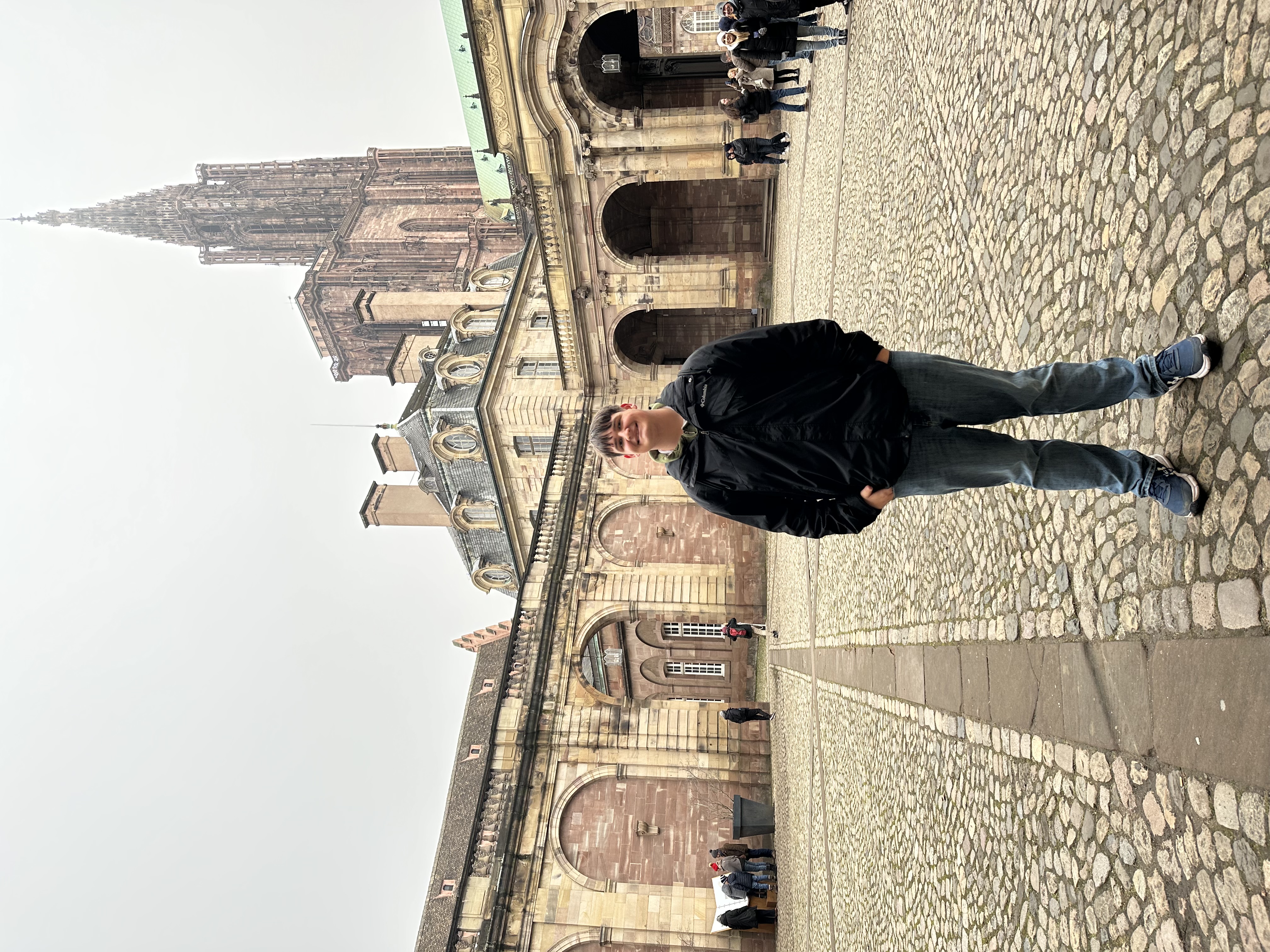
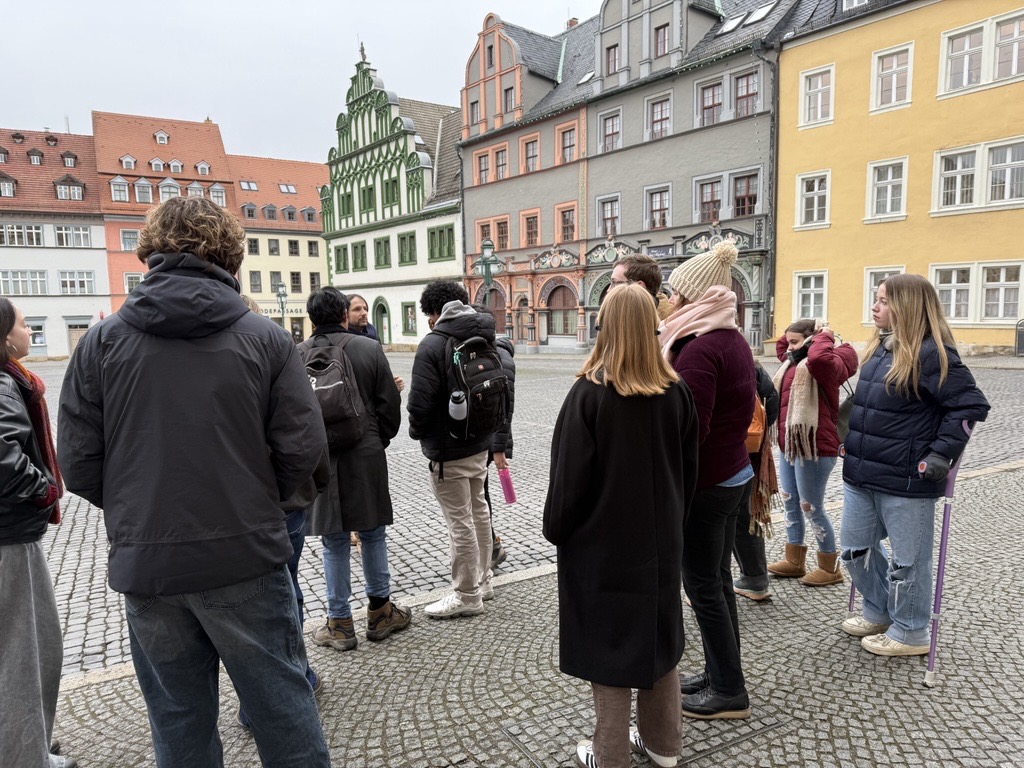
Nacel Open Door is proud to administer the Congress-Bundestag Youth Exchange (CBYX) Vocational Scholarship. To learn more about this great gap year opportunity, visit www.nacelopendoor.org/cbyx.